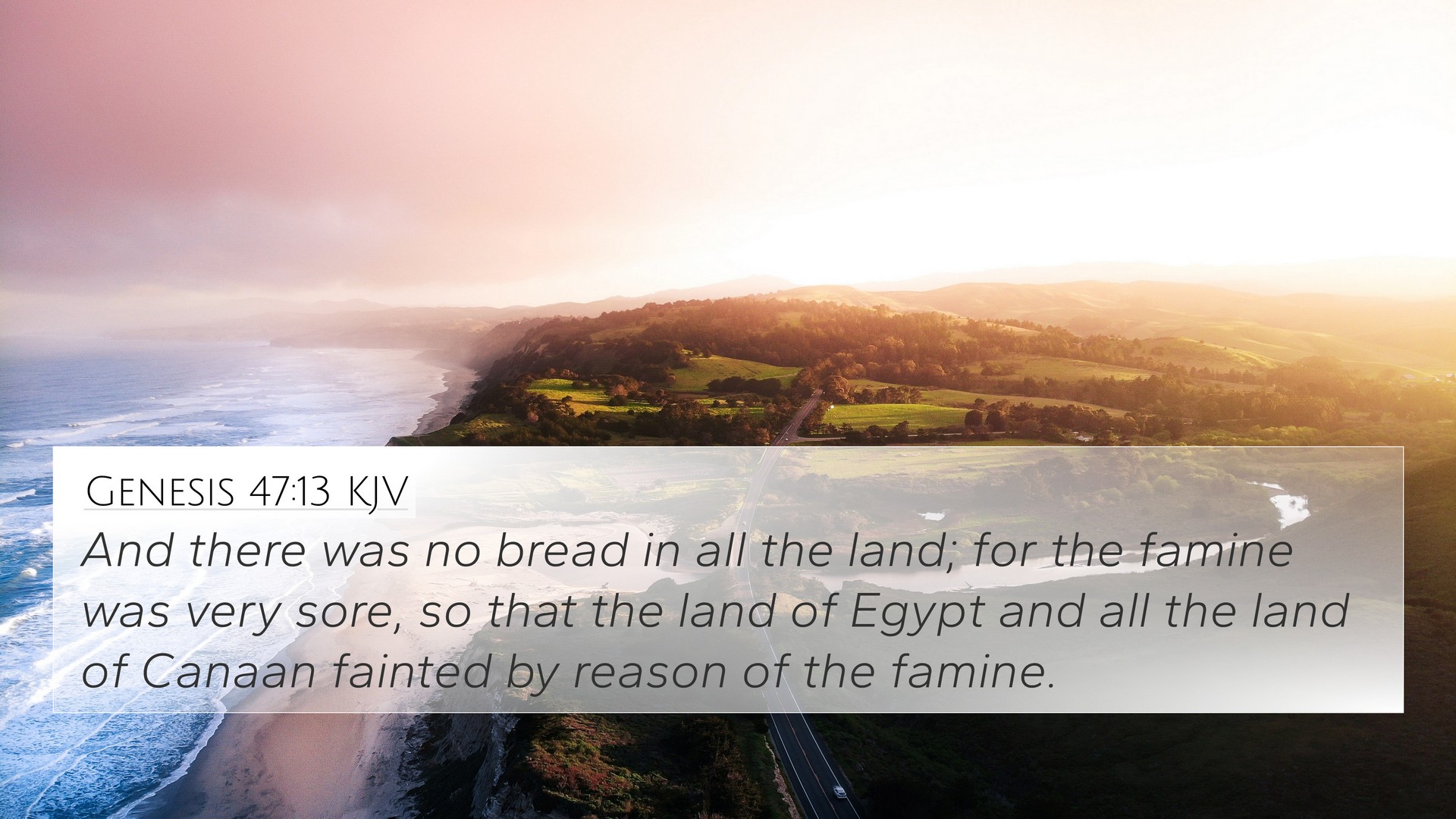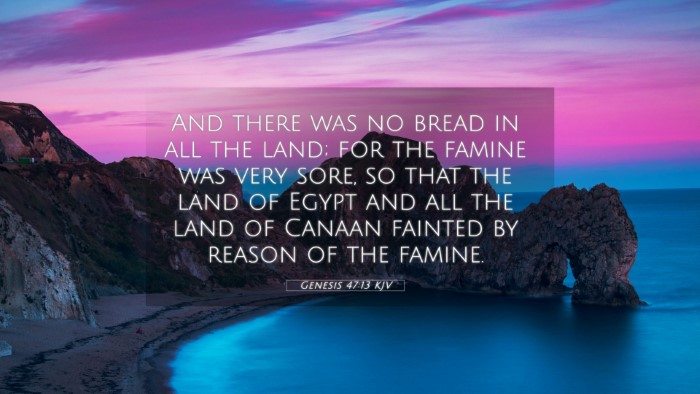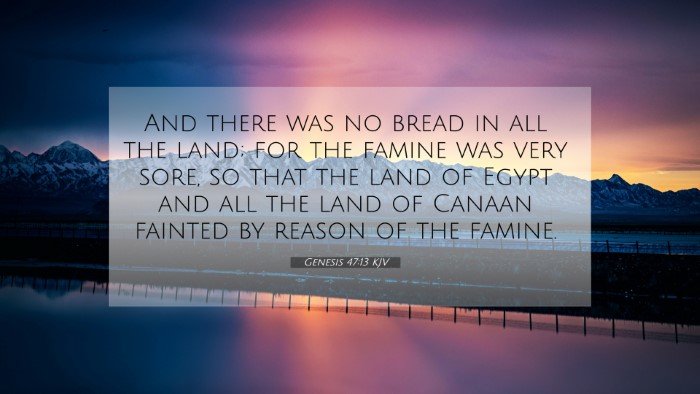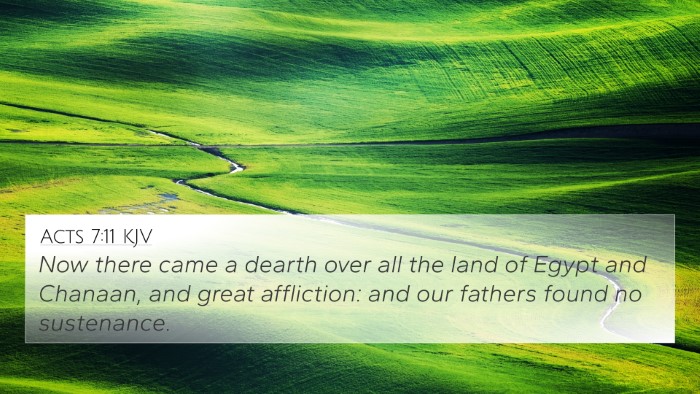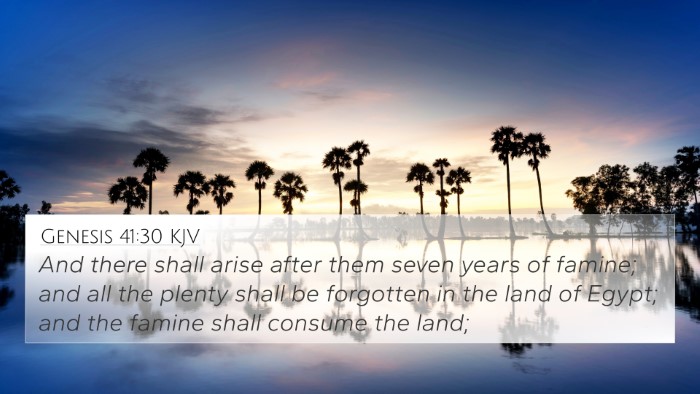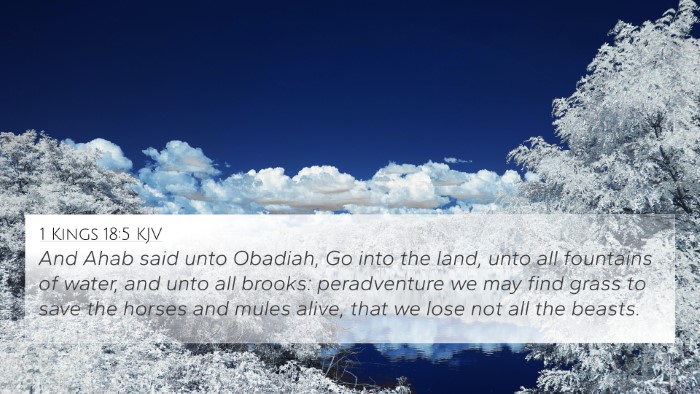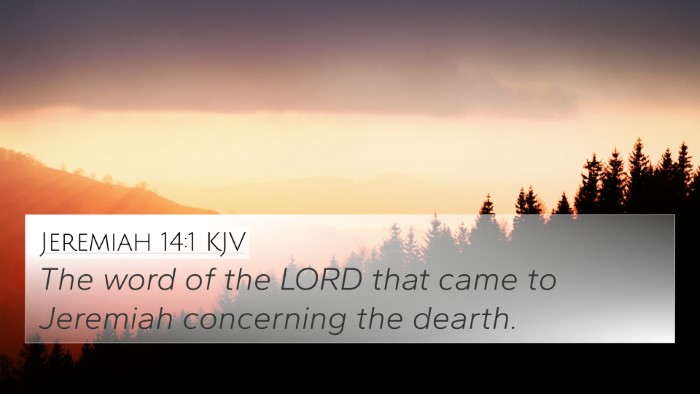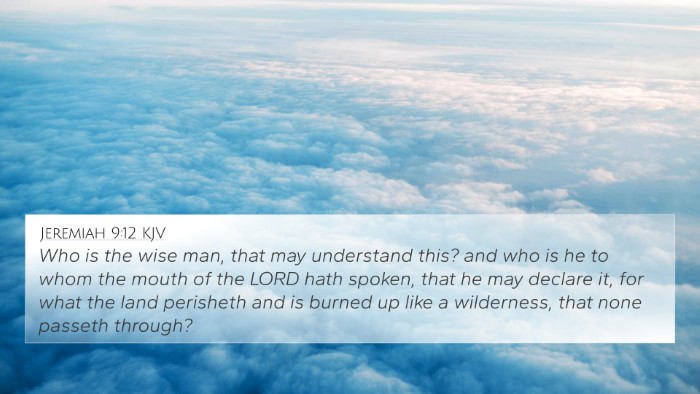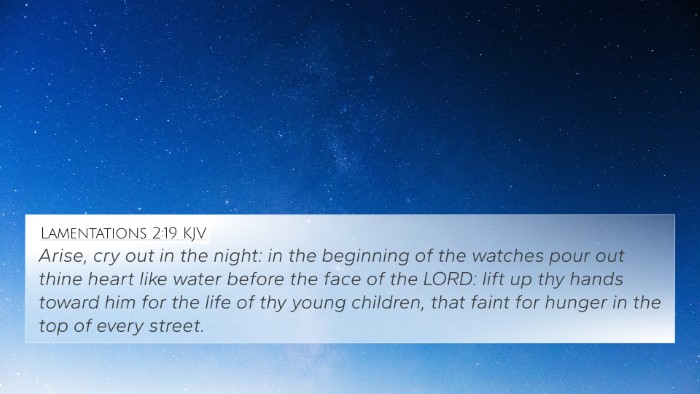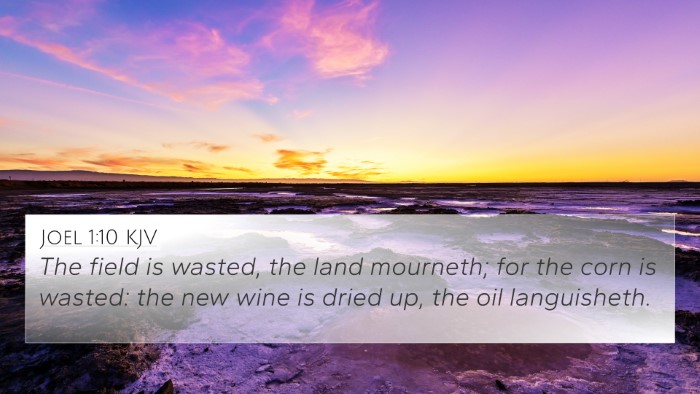Understanding Genesis 47:13
Genesis 47:13 reads: "And there was no bread in all the land; for the famine was very sore, so that the land of Egypt and all the land of Canaan fainted by reason of the famine." This verse occurs during a critical episode of Joseph's governance in Egypt, where he manages the affairs during a severe famine. Commentators analyze this verse to emphasize several key theological and practical insights.
Summarized Insights from Public Domain Commentaries
1. The Severity of the Famine
As noted by Matthew Henry, the famine was not just a passing scarcity but a comprehensive crisis affecting all regions—both Egypt and Canaan. This emphasizes God's sovereignty as He controls even the natural elements to fulfill His divine purposes.
2. Human Desperation
Albert Barnes reflects on the effects of this famine, pointing out the level of desperation it induced among the people. When provisions dried up, it highlighted human vulnerability, encouraging dependence on God’s provision rather than solely on human efforts or resources.
3. Context of Divine Providence
Adam Clarke discusses this event within the context of God’s providence. Joseph's previous experiences in the house of Potiphar and his imprisonment were not in vain; they prepared him for leadership during the famine and the help of nations in distress.
Cross-References with Genesis 47:13
- Genesis 41:30 - This verse forecasts the severe famine that will come, linking Joseph's interpretation of Pharaoh's dreams with the events in 47:13.
- Genesis 41:54 - Demonstrates that both Egypt and other lands faced famine, showing the widespread nature of this crisis.
- Genesis 45:6 - Joseph reveals to his brothers that there are still five years of famine to come; thus, establishing the urgency and prolonged nature of this national distress.
- Ruth 1:1 - Analogous in that it details a famine in the land of Judah which prompts Naomi to move to Moab, establishing a thematic link to the harsh realities of famine affecting communities.
- Matthew 4:4 - Jesus quotes that man does not live by bread alone, magnifying the essence of spiritual nourishment amidst physical scarcity.
- Acts 11:28 - Agabus prophesies a famine which further illustrates the occurrence of famines as a sign of divine communication with humanity throughout scripture.
- Luke 15:14 - The Prodigal Son experiences famine, leading to his downfall and highlighting the profound ramifications of poor decisions.
- Revelation 6:6 - This verse mentions a scarcity during the judgment which resonates with the impending conditions described in Genesis 47.
- 1 Kings 17:1 - Elijah speaks of a drought that brings famine, connecting with the broader theme of divine intervention through the lack of resources.
- James 5:17 - Speaking of Elijah, this verse mirrors the influence of prayer in times of drought or famine.
Thematic Connections and Interpretations
The theme of famine in Genesis 47:13 opens avenues for inter-Biblical dialogue, showcasing how scriptural narrative intertwines themes of need, divine provision, and calamity. This links to various verses where peoples' sustenance is tied to their spiritual state and God's ultimate sovereignty over both the spiritual and physical realms.
1. Dependence on God's Provision
This verse's emphasis on famine reflects an overarching biblical theme of reliance on God's provision. In times of scarcity, believers are reminded of their need for spiritual bread, which is Christ—much like the people in Egypt relied on Joseph for grain.
2. Redemptive History
The appearance of famine often serves as a catalyst within biblical narratives leading to significant redemptive events, prompting characters to look upward. Joseph's rise to power in Egypt symbolizes God's providential care even amidst dire conditions.
3. Empathy and Compassion in Crisis
As the famine affected all the people, the response to such crises ought to reflect biblical compassion and empathy, illustrated through Joseph's eventual role in providing for those in need.
Conclusion
Genesis 47:13 stands as a vivid reminder of scarcity that pushes both individuals and nations towards seeking divine assistance. This verse encapsulates significant theological truths while encouraging believers to understand the interconnectedness of scripture through cross-referencing. The insights gathered from using tools for Bible cross-referencing can deepen one's scripture study, revealing thematic connections that transcend individual verses and speaks to God's overarching narrative of provision and redemption.
